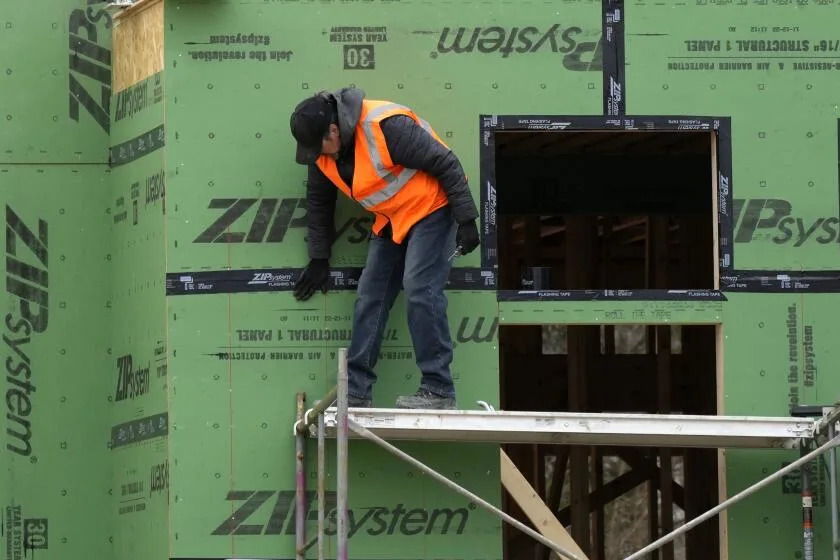News
U.S. job growth bounces back in November, a reassuring sign that the labor market remains healthy

Job growth rebounded in November from the weather-related stall in hiring the previous month, fresh evidence that the U.S. labor market remains healthy despite signs of a slowing economy overall, according to new government data released Friday.
But the nation’s unemployment rate edged up to 4.2% last month from 4.1% as more people reported being unemployed. That is still low by historical standards, although the rate has crept up from 3.7% at the start of the year.
Read more: U.S. economic growth remains impressive. It's the envy of the world, except at home
California's most recent unemployment rate, for October, was 5.4% . And the state has lagged behind the nation in job growth.
The U.S. job gains reported Friday were slightly stronger than what most economists had expected. Still, the pace of hiring nationally has been on a cooling trend from earlier this year. And with the rise in unemployment, financial markets are betting that the Federal Reserve will make another quarter-point rate cut at its last policy-setting meeting of the year on Dec. 18.
The central bank is striving to strike a balance between maintaining steady job gains and continuing its efforts to bring inflation down to its 2% target by keeping interest rates higher than usual. A key measure of core inflation was most recently at 2.8%.
Friday's report showed that employers nationwide added 227,000 jobs in November, led by big gains in healthcare and leisure and hospitality. Government also added a sizable number of jobs. Taken together, these three sectors accounted for 62% of all the jobs added last month.
Read more: Fed announces big half-point interest rate cut, the first reduction since 2020
But the retail industry, which once tended to add a lot of seasonal help in late fall, lost 28,000 jobs in November and its payrolls have barely grown all year, a reflection of continuing difficulties at brick-and-mortar stores and some recent softening in retail sales. Online sales on Black Friday , the day after Thanksgiving, saw strong increases while physical stores showed modest gains.
November's overall job gains included a reversal of temporary losses in the prior month, when only 36,000 jobs were added, thanks to hurricanes and a strike by Boeing workers, which has since ended.
"Firms continue to manage their workforce carefully," said Joseph Brusuelas, chief economist at the tax and consulting firm RSM US. He said the recent tally "speaks to a remarkable stability across the labor force even as finding a job is becoming a bit more difficult as firms become far more selective with whom they are hiring."
California's employment statistics for November won't be released until Dec. 20. Some analysts, though, say Friday's national jobs report and other recent patterns suggest that California probably hasn't been keeping pace.
In October, employers in California shed 5,500 jobs, even though the state wasn't affected by the hurricanes. The state has greater exposure to international trade, which has felt the effects of a strong dollar and weaker growth in China, said Sung Won Sohn, professor of economics and finance at Loyola Marymount University.
Hiring in the real estate sector has been sluggish, and it's been slow in two of the state's leading industries — technology and film — both of which have gone through hard times. Last month, U.S. jobs in the motion picture business were up a meager 1,900 from October. Manufacturing employment in California has been falling at a faster rate than nationally.
"In a nutshell, it's too expensive for employees to live and work in California," Sohn said.
Nationally, the economy is slowing from its robust pace earlier this year. So far in this quarter, the nation's gross domestic product, the broadest measure of economic activity, looks to be expanding at roughly half the 3% annual rate in prior months.
Job growth, meanwhile, has been more volatile lately, but over the last three months payrolls increased on average by 173,000, which is down from near 200,000 in the prior 12 months.
In November, average hourly earnings for all employees in the private sector rose by 13 cents, to $35.61. That’s a 4% increase from a year ago, which is about one percentage point above the annual rate of inflation.
Sign up for our Wide Shot newsletter to get the latest entertainment business news, analysis and insights.
This story originally appeared in Los Angeles Times .

